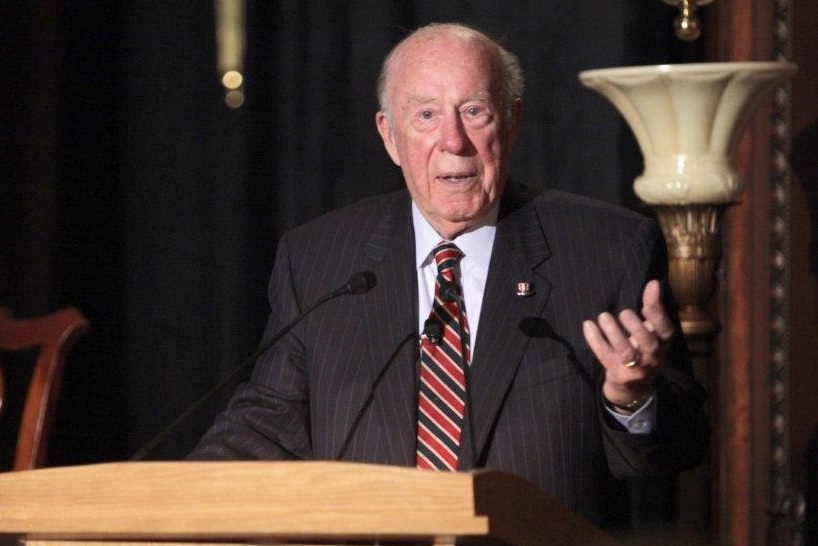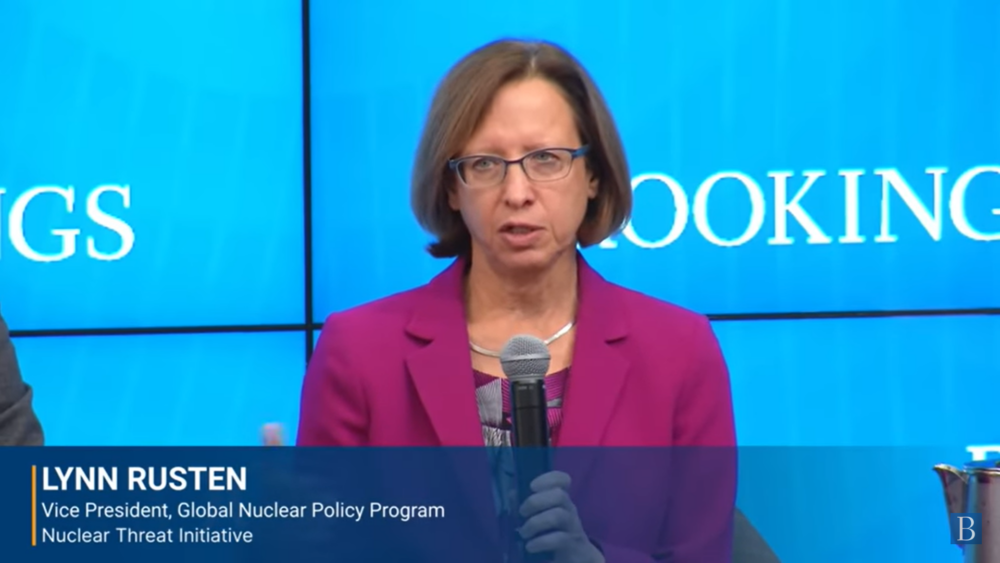
Sam Nunn
Co-Founder and Co-Chair, NTI
Today, Bill Perry, Henry Kissinger and Sam Nunn publish a new op-ed in The Wall Street Journal detailing critical steps to reverse the world’s reliance on nuclear weapons, prevent their proliferation, and ultimately end them as a threat to the world. In it, they write:
"For the past 15 years, the three of us and a distinguished group of American and international former officials and experts have been deftly and passionately led by our late friend and colleague, George Shultz. Our mission: reversing the world’s reliance on nuclear weapons, to prevent their proliferation into potentially dangerous hands, and ultimately ending them as a threat to the world. Without a bold vision, practical actions toward that goal won’t be perceived as fair or urgent. Without action, the vision won’t be perceived as realistic or possible.
"George led this charge with the tenacity of a U.S. Marine and the wisdom of a man who held four cabinet positions for two presidents, including secretary of state for Ronald Reagan. Reagan considered nuclear weapons to be 'totally irrational, totally inhumane, good for nothing but killing, possibly destructive of life on earth and civilization.' He took that view and his most trusted advocate for it, George Shultz, to a summit with Soviet leader Mikhail Gorbachev in Reykjavik, Iceland, in 1986."
Read the full article at WSJ.com here.
###
Sign up for our newsletter to get the latest on nuclear and biological threats.
The DoD’s new CWMD strategy, last updated in 2014, comes at a time when longstanding norms against nuclear use are being tested.
The paper highlights the need for renewed attention to the catastrophic effects of nuclear conflict as a crucial step toward reducing the risk of nuclear use.
A new report from NTI highlights the critical need for a global diplomatic approach to address growing cyber risks, including, where possible, through cooperation between the United States and Russia.



